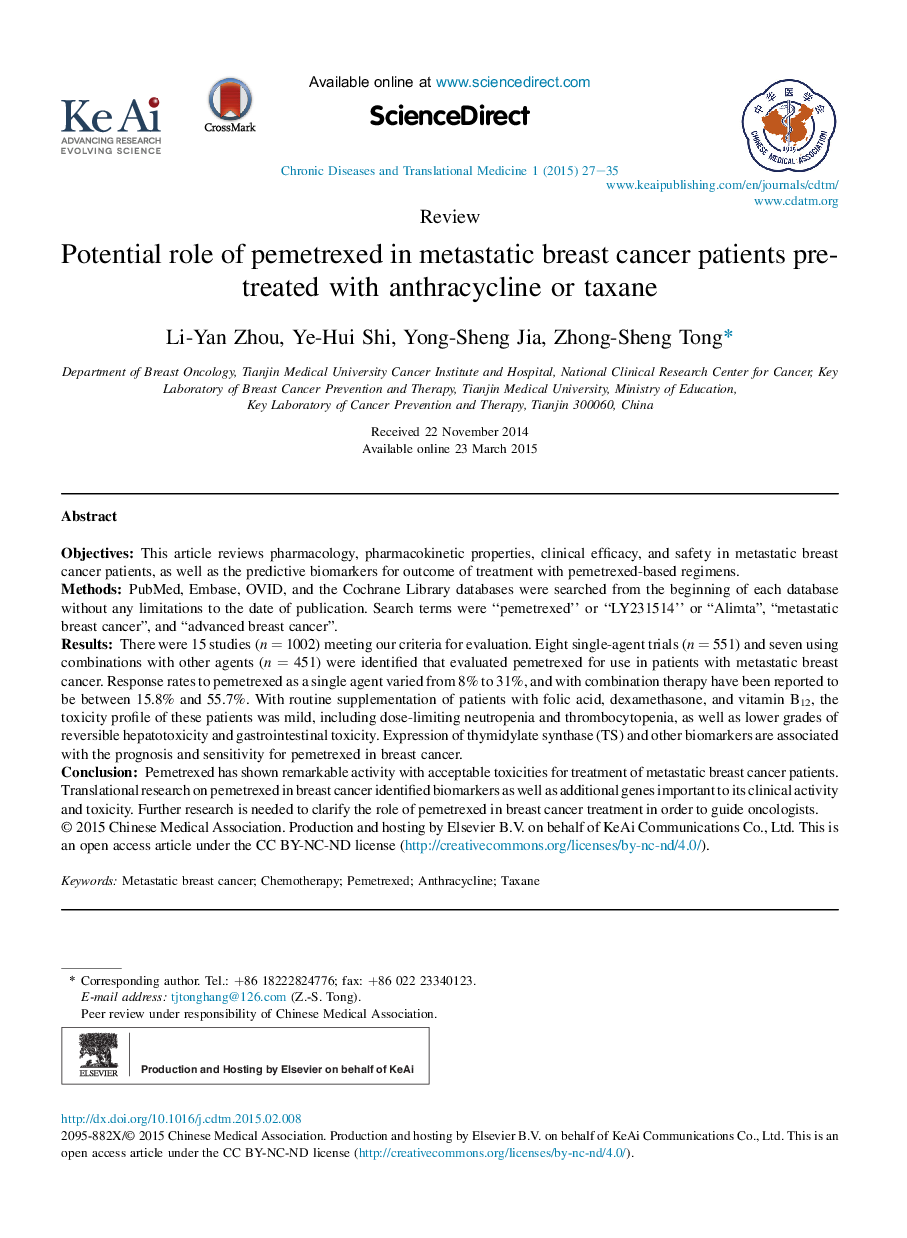| Article ID | Journal | Published Year | Pages | File Type |
|---|---|---|---|---|
| 3459904 | Chronic Diseases and Translational Medicine | 2015 | 9 Pages |
ObjectivesThis article reviews pharmacology, pharmacokinetic properties, clinical efficacy, and safety in metastatic breast cancer patients, as well as the predictive biomarkers for outcome of treatment with pemetrexed-based regimens.MethodsPubMed, Embase, OVID, and the Cochrane Library databases were searched from the beginning of each database without any limitations to the date of publication. Search terms were ‘‘pemetrexed’’ or ‘‘LY231514’’ or “Alimta”, “metastatic breast cancer”, and “advanced breast cancer”.ResultsThere were 15 studies (n = 1002) meeting our criteria for evaluation. Eight single-agent trials (n = 551) and seven using combinations with other agents (n = 451) were identified that evaluated pemetrexed for use in patients with metastatic breast cancer. Response rates to pemetrexed as a single agent varied from 8% to 31%, and with combination therapy have been reported to be between 15.8% and 55.7%. With routine supplementation of patients with folic acid, dexamethasone, and vitamin B12, the toxicity profile of these patients was mild, including dose-limiting neutropenia and thrombocytopenia, as well as lower grades of reversible hepatotoxicity and gastrointestinal toxicity. Expression of thymidylate synthase (TS) and other biomarkers are associated with the prognosis and sensitivity for pemetrexed in breast cancer.ConclusionPemetrexed has shown remarkable activity with acceptable toxicities for treatment of metastatic breast cancer patients. Translational research on pemetrexed in breast cancer identified biomarkers as well as additional genes important to its clinical activity and toxicity. Further research is needed to clarify the role of pemetrexed in breast cancer treatment in order to guide oncologists.
